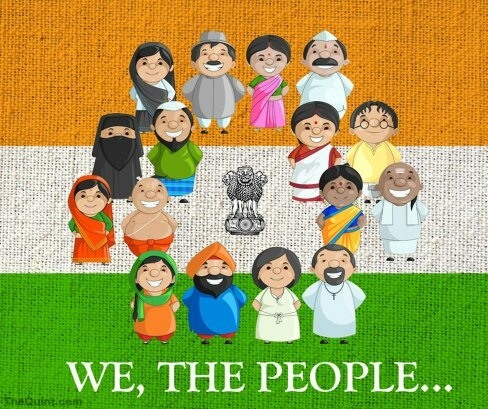The Goa Chief Minister Manohar Parrikar recently commented that the poor should stay clean because it costs less than remaining unclean. Surely, Mr. Parrikar needs to understand that when there are more than 270 million people below the poverty line there are far greater concerns than cleanliness. While we should be working towards building a system that ensures people a dignified living across economic backgrounds, no elected representative in a democracy shall have the right to mock the conditions of the suffering poor. This statement is utterly objectionable and must be widely condemned.
Kabir | The New Leam

One only wishes looking at the Indian political scenario and specifically at the way there seems to be a growing disconnect between politicians and the public that there is an urgent need to radically alter and transform our political culture. Within a democracy, it is the elected representatives who are given the responsibility to stand for and represent the voices of the thousands of people, who have made them the leader through casting their own precious vote. But today we see that there seems to be developing a wide gap between the needs, aspirations and voices of ordinary citizens and their elected representatives. This is reflected in a series of inconsequential legislations and laws, in policy recommendations that look grand as documents but deliver little in practicality and a large range of promises that are made during the campaign season that are forgotten once a representative may be elected. It is ironic that through the decades, this gap has only widened and the disillusionment is multiplying amidst a large section of the population. Are our political leaders so distanced from the grassroot demands of people that they have altogether forgotten to address to their needs and feel accountable for their socio-economic deprivation? Is the primary function of the state only to maintain an army, look after law and order and to represent the nation in diplomatic relations only-or is the governmental body also responsible for looking after the population and ensuring that their minimum needs are met?
This fact came to light once again when recently the Goa Chief Minister Manohar Parrikar commented that the poor people of the country should also be clean and neat, as this was cheaper than remaining dirty or unclean. This statement comes from the leader of a state that is part of a nation called India, where a large section of the population is still under economically marginalised conditions. Does he realise what he is saying? Will any human being rich or poor willingly want to stay dirty, unkempt or shabby? If given a choice, will they not like to take a bath, wear clean clothes or defecate in closed/designated spaces? If poverty is entrenched in the social fabric, if economic deprivation is born out of an unjust allocation and management of resources then should we not be mature enough to understand that its consequences are also not dependent on one’s discretion?
It is ironic that elected representatives such as Mr. Parrikar have shown little sensitivity towards the plight of poor people and his statement has made a mockery out of their vulnerable condition. Instead of talking about measures and his government’s own program towards alleviating poverty in his state , he chose to make a statement that not only reflects political ignorance but also a lack of sensitivity on the part of the political class. When there is no food in the kitchen, no healthcare for the ill, the roof over one’s head in rain or sunshine, no education or employment for the young- how can remaining neat and clean be a choice? It is an irony of the system and an attack on the ethics of democracy that an elected representative makes a statement as immature as this. Surely, Mr. Parrikar needs to know that he resides in a country where even today 270 million people live below the poverty line and they surely have a lot to think about before they can choose to remain ‘neat and clean’.
If you Liked the story? We believe that if individuals like you come forward and SUPPORT THIS ENDEAVOR can make the magazine self-reliant in a very innovative way.














